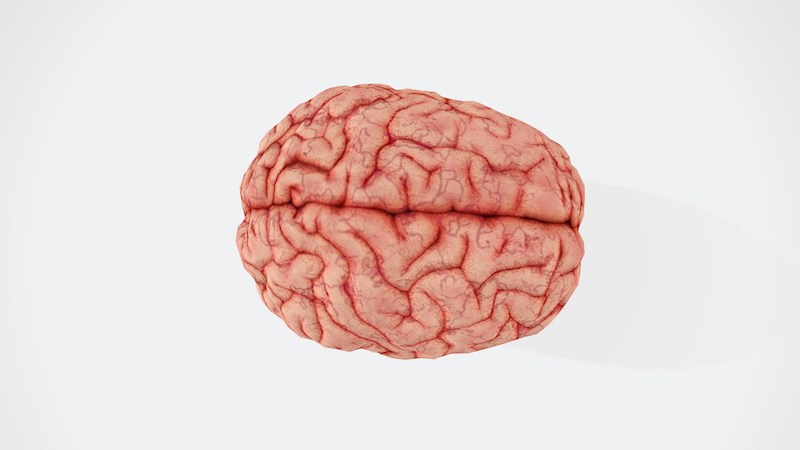How to Participate in Alzheimer's Clinical Trials in The Netherlands
Last updated: 30 October 2024

You can legally access new medicines, even if they are not approved in your country.
Learn howThe biggest Alzheimer research center of Europe, with locations in Amsterdam, Den Bosch, and Zwolle, focused on new medicine research.Are you finding it challenging to access the latest treatments for Alzheimer's in The Netherlands? Participating in clinical research may be a worthwhile option. Clinical trials contribute to scientific understanding. And they also may provide you with access to emerging treatments that are otherwise unavailable.
This guide covers everything you need to know about taking part in Alzheimer’s research in the Netherlands. From potential benefits and drawbacks to steps for enrollment and alternatives if you’re not eligible for a clinical trial.
Why participate in Alzheimer's clinical trials?
There can be many reasons to participate in Alzheimer's research.
One of the main reasons is to contribute to the understanding of Alzheimer's disease and the development of treatments.
Another reason is the potential for faster access to Alzheimer's medicines that are not yet approved or available in your country. For example, medicines that have only recently gained their first global approval and are still under evaluation in most countries, while the clinical research on them continues. Examples are Leqembi (lecanemab) and Kisunla (donanemab).
Advantages and disadvantages of participation in Alzheimer's research
Making the decision to take part in a clinical trial can be challenging. There are both advantages and disadvantages to consider, and it's always a good idea to discuss these with your treating doctor.
Advantages:
-
Access to the newest treatments: Depending on your location, taking part in a clinical trial can be a faster way for you to access new medicines and therapies before they’re available to the public.
-
Contribution to Alzheimer’s research: By participating in a clinical trial, you contribute directly to the advancement of knowledge about Alzheimer’s disease. This can benefit you, but also future generations by helping develop more effective treatments.
-
Increased monitoring and support: Many clinical trials involve more frequent testing, health checkups, and evaluations than standard treatments. This means that any health changes are detected early and addressed, offering you a higher degree of medical oversight.
-
Financial support: Some clinical trials cover travel expenses, provide compensation for time, or offer the treatment free of charge. This can make participation financially viable. Especially when it comes to novel treatments that you could sometimes also get outside a clinical trial, but would have to pay for yourself.
Disadvantages:
-
Unknown side effects: New treatments may have unknown side effects that only become apparent after more people participate in trials. You should be aware of this possibility, and discuss any concerns beforehand with the clinical trial team.
-
Time and commitment: Participating in an Alzheimer's clinical trial can require a significant time commitment. Trials may involve regular travel to clinical sites, strict scheduling for taking medications, and frequent tests or assessments.
-
No guarantees: When you're in a clinical trial, there are no guarantees that you will be assigned to the treatment group, or that the treatment will be effective. You may see improvement or not respond to the therapy.
Who conducts research on Alzheimer’s in The Netherlands?
In the Netherlands, several institutions and universities are involved in Alzheimer’s research. Some are focused on understanding the disease better, and others - on discovering new treatments. For example:
- Brain Research Center: The biggest Alzheimer research center of Europe, with locations in Amsterdam, Den Bosch, and Zwolle, focused on new medicine research.
- Alzheimer Nederland: This organization funds and supports research into Alzheimer’s.
- ICON: A medicine research organization focusing on a variety of conditions, including Alzheimer's.
- Universities: Many universities, such as Vrije Universiteit Amsterdam, Universiteit van Amsterdam, and Erasmus MC, have research groups focused on dementia and Alzheimer’s.
- Hospitals: Various hospitals in the Netherlands participate in clinical trials and have specialized departments for dementia care. For example, UMC in Amsterdam, UMCG in Groningen, and more.
In some cases, you may be able to join a clinical trial abroad as well. To know if that's the case, you should get in touch with the clinical trial team. Joining a trial in another country can be complex in terms of travel and accommodation. Reimbursement may only be available to local participants. However, this is also likely to vary from one trial to the next, so if you cannot find a suitable study in The Netherlands, it's worth exploring ongoing Azlheimer's research in other countries.
How can you join a clinical trial for Alzheimer's?
Participating in Alzheimer’s research is more accessible than many people think. You do not need a referral from your doctor to enroll in a clinical trial.
You can go about taking part in Alzheimer's research in two ways . One is by signing up for a participant database and waiting to be contacted for relevant trials. Another is by finding suitable trials yourself and applying for them directly.
Registering on a participant database
In the Netherlands, there are several platforms to sign up as a participant in Alzheimer's research. On all platforms below, you can leave your details and be notified when a relevant trial starts recruiting:
Finding a specific Alzheimer's clinical trial
If you prefer to sign up for a specific trial that is currently ongoing, follow these steps:
-
Search for suitable trials: Start by looking for ongoing clinical trials focused on Alzheimer’s. You can do that on platforms like the Brain Research Center's website, Antidote.me, or Findmecure.
-
Check if you're eligible: Clinical trials listed online typically describe participant eligibility criteria. Review them to see if you qualify.
-
Sign up: If you find a study of interest, you can sign up yourself. This is usually done through the researcher’s or institution’s website.
-
Communicate: Once you sign up, the research team will contact you to provide more information and determine your suitability for the study.
What if you're not eligible for clinical trials?
If you are not eligible for clinical trials or if there are currently no suitable studies available, there are other options to access new medicines.
One possibility is to access them as a "named patient." This means that, under certain conditions, you can receive new treatments for Alzheimer's that have not yet been approved in The Netherlands. This option requires the support of your physician. Everyone.org is specialized in this and can provide you with information and support in the process. Get in touch with our expert team to get started.




